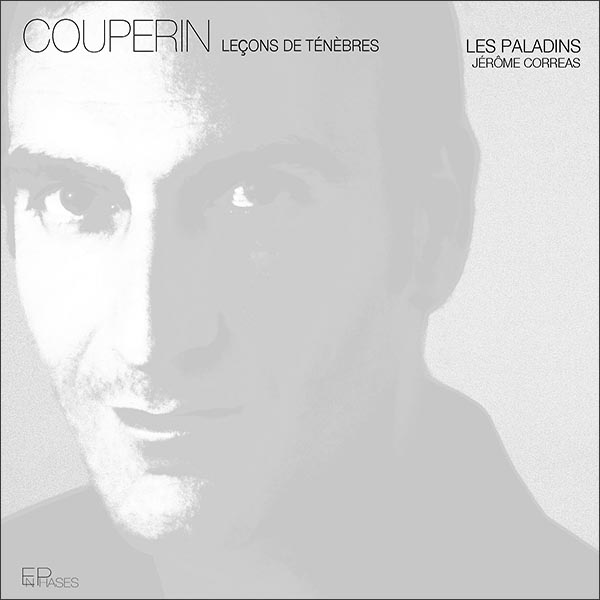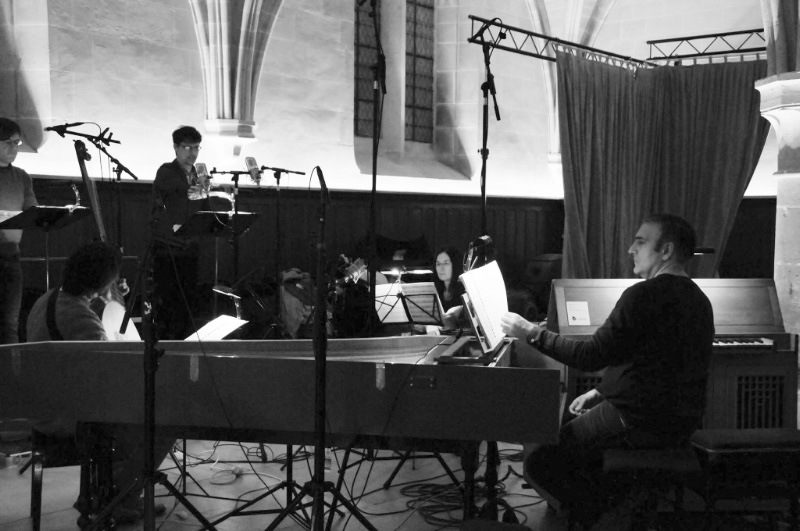Couperin - Leçons de Ténèbres

François Couperin
LEÇONS DE TÉNÈBRES
LES PALADINS direction JÉRÔME CORREAS
LABEL ENPHASES, DISTRIBUTION OUTHERE
ENP004
A theatrical version of François Couperin's masterpiece, sung by two male voices, as suggested by the composer in the reader's advisory in the original edition.
Release date: 16 November 2018
1ère Leçon de Ténèbres pour le Mercredy
2ème Concert Royal : Prélude
1ère Leçon de Ténèbres (suite)
2ème Concert Royal : Air Contrefugué
1ère Leçon de Ténèbres (fin)
1er Concert Royal : Sarabande
2ème Leçon de Ténèbres pour le Mercredy
2ème Concert Royal : Allemande Fuguée
2ème Leçon de Ténèbres (fin)
3ème Leçon de Ténèbres pour le Mercredy
1er Concert Royal : Gavotte
3ème Leçon de Ténèbres (fin)
2ème Concert Royal : Air Tendre
Motet pour le Jour de Pâques
Jean-François Lombard, Romain Champion, countertenor
Sylvia Abramowicz, Françoise Enock, viola da gamba
Benjamin Narvey, theorbo
Jérôme Correas, harpsichord and organ
With the support of : ADAMI (as part of the 365 programme) - Fondation Royaumont -The Singer-Polignac Foundation

About the project
"A few years ago I composed three Leçons de Tenébres for Holy Friday, at the request of the Dames Religieuses de L[ongchamps], where they were sung with success (...) although the chant is noted on the Clef de dessus, all other types of voices can sing them, especially as most of the people who accompany us today know how to transpose...
This is how François Couperin expressed himself in his preface to the Leçons de Ténèbres du Mercredy Saint, giving us some very useful indications for the understanding of a work that we must hear here without the support of a religious ceremony or architecture. (...)
1714 was definitely a fertile year for François Couperin: present in church with his Leçons de Ténèbres, he was also present at court with his Concerts Royaux.
Intended to entertain Louis XIV at the end of his life, these instrumental pieces are visibly inspired by the same spiritual demands and harmonic richness that go beyond the strict framework of the dance suite. Here we find the same freedom granted to the performer in the choice of instruments: harpsichord, viola da gamba, flute or violin. We have chosen the version for viola da gamba, which is very rarely performed. (...)
In this imaginary concert, we have taken advantage of the freedom of interpretation offered by the Baroque repertoire to explore the expressive possibilities of a masterpiece of religious theatre. Let us imagine for a moment the emotion of the audience of the time when listening to the artists of the Royal Academy of Music interpreting these Leçons de Ténèbres, moving from the splendour of lyrical theatre to that of sacred music.
Jérôme Corréas
Share on your networks!
Follow us on the networks!

